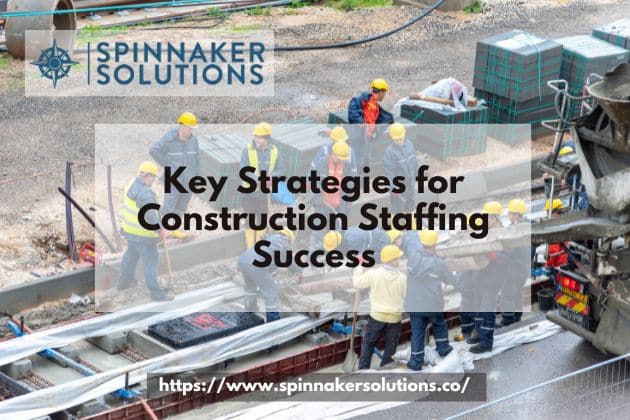In the fast-paced world of construction, productivity is the name of the game. Whether it’s a towering skyscraper or a cozy residential home, completing projects on time and within budget requires a skilled and efficient workforce. However, finding and retaining top talent in the construction industry can be challenging. In this blog, we’ll explore seven effective strategies for enhancing productivity through construction staffing, ensuring smooth operations and successful project delivery.
Understanding Project Requirements
Before diving into staffing decisions, it’s crucial to have a clear understanding of the project’s scope, timeline, and specific skill requirements. Whether it’s carpentry, plumbing, electrical work, or project management, each task demands a unique set of skills and experience. By thoroughly analyzing project requirements upfront, construction managers can make informed decisions when it comes to recruiting and assigning personnel.
Utilizing Technology for Recruitment
Gone are the days of relying solely on classified ads or word-of-mouth referrals for hiring construction workers. Embracing technology can streamline the recruitment process, saving time and resources. Staffing agencies near you, online job boards, social media platforms, and specialized construction staffing software can help connect employers with qualified candidates efficiently. Leveraging these tools not only widens the talent pool but also allows for targeted recruitment efforts tailored to specific skill sets.
Prioritizing Safety and Training
Safety should always be a top priority in the construction industry. Providing comprehensive safety training for all staff members not only reduces the risk of accidents and injuries but also contributes to overall productivity. A well-trained workforce is more adept at identifying potential hazards and adhering to safety protocols, leading to smoother operations and fewer delays due to incidents.
Implementing Flexible Work Arrangements
Flexibility in work arrangements can be a game-changer for construction staffing. Offering options such as part-time schedules, flexible hours, or remote work opportunities can attract a wider pool of candidates, including those with caregiving responsibilities or other commitments. Moreover, flexible arrangements can boost employee morale and satisfaction, resulting in higher productivity and lower turnover rates.
Embracing Diversity and Inclusion
Diversity in the construction workforce brings a myriad of benefits, including enhanced creativity, problem-solving, and innovation. By fostering an inclusive work environment where individuals from diverse backgrounds feel valued and respected, construction companies can attract and retain top talent from all walks of life. Embracing diversity not only strengthens team dynamics but also reflects positively on the company’s reputation and brand image.
Investing in Employee Development
Continuous learning and development are essential for staying ahead in the competitive construction industry. Providing opportunities for skill enhancement, certification programs, and career advancement can motivate employees to perform at their best and contribute to the company’s success. Investing in employee development not only improves individual performance but also cultivates a culture of growth and excellence within the organization.
Implementing Performance Metrics and Feedback Mechanisms
Measuring performance and providing timely feedback are critical components of effective construction staffing strategies. Implementing performance metrics such as productivity rates, project completion times, and client satisfaction scores can help identify areas for improvement and recognize top performers. Additionally, establishing regular feedback mechanisms allows employees to voice concerns, share ideas, and contribute to process improvement efforts, fostering a culture of transparency and continuous improvement.
Conclusion
In the dynamic world of construction, enhancing productivity through effective staffing strategies is essential for achieving project success. By understanding project requirements, leveraging technology for recruitment, prioritizing safety and training, implementing flexible work arrangements, embracing diversity and inclusion, investing in employee development, and implementing performance metrics and feedback mechanisms, construction companies can build high-performing teams capable of tackling any challenge that comes their way. By prioritizing the well-being and professional growth of their workforce, construction companies can pave the way for sustainable growth and long-term success in the ever-evolving industry landscape.


